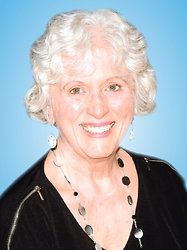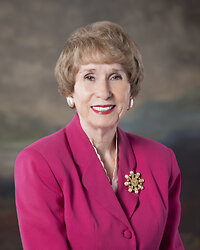Happiness and self-esteem are often thought to come from outside ourselves. We think that we'll feel good about ourselves if we get this award, this promotion or raise, or if people like us We might compare our gifts and talents to those of others and compete with them. In thinking that we have to be better than others, some of us may be like the Queen in the story of Snow White: she couldn't accept her own gifts and beauty if they were not better than everyone else's. How could she celebrate her talents and beauty if there was someone who was better looking and had more talent? She had to eliminate that competition. Her disappointment came when she was told that there was someone out there who was better looking, more successful, more athletic, etc.

Our self-esteem may have been damaged by what some called
"conditional-love scars" from the past. We were not accepted for who we
are, but only on the condition that we meet someone else's criteria for
success or beauty. We put our worth in someone else's hands. We were no
longer the authority on the value of our gifts.
Within each of us,
I picture a self-esteem bucket.
We believe that when the bucket is full,
we will feel loved.
I picture a self-esteem bucket.
We believe that when the bucket is full,
we will feel loved.
Within each of us, I picture a self-esteem bucket. We believe that when the bucket is full, we will feel loved. We spend a lot of time and energy in trying to fill it. We look outside ourselves for people and things to fill our bucket. We might think, "If I get my college degree, or that special job, I will feel good about myself." It works for a while, but nothing lasts because the bucket has holes in the bottom, and we find ourselves looking for something else to fill that bucket. We may even think that it's the job of our spouse, children or others to fill our bucket. It is not. It is our job.
The road to self-esteem begins by looking inward, coming to agree with Popeye's famous saying, "I am what I am, and that's all that I am." The road to healthy self-esteem begins with unconditionally accepting who we are now. It is not picking and choosing the parts we like, but accepting all of ourselves- warts and all. We can recognize our weaknesses, limitations, and foibles- and this awareness will in no way interfere with our ability to fully accept ourselves.
Perhaps more than anything else, cultivating self-acceptance requires that we develop more self-compassion. Only when we can better understand and pardon ourselves for things that earlier we assumed must be all our fault can we secure the relationship with self that until now has eluded us.
Dr. William E. Austin is a licensed psychotherapist and holds a Doctor of Divinity degree. He is a therapist with Tidewater Pastoral Counseling Services . He is well known for his warmth and sense of humor. His book, Creating Our Safe Place - Articles on Healthy Relationships, can be purchased through www.amazon.com.
Tidewater Pastoral Counseling: 623-2700
CURRENT COLUMNS
Publisher’s Point 
Time To Moveby Jean Loxley-BarnardOn The Front Porch With You 
Memories of Homeby Rob LauerRelationships 
When Your Security Blanket is in the Dryerby Dr. Bill AustinChildren First 
Dandelion Timeby Becky Adams

